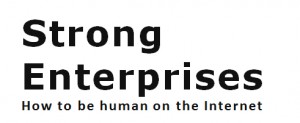It is an important part of our working lives to meet, plan and agree. In fact, with the increase in virtual and flexible working it is even more important to maintain some form of human contact with our fellow team members using all the digital knitting and technology available to us.
Paradoxically, if meetings are maintaining the fabric of connection and carrying messages of corporate cultural progress to all parts of the organisation, why do they leave the impression of wasting time?
With this conundrum in mind, here is a quick introduction to the science of meetings in five thought moments.
Thought 1. What is a meeting for?
This is a key question. It sounds obvious, but there are different species of meeting for different situations.
For example:
- ‘What are you doing this week?’ meeting
- ‘Lets get everybody motivated’ meeting
- ‘I need you to know what I am doing’ meeting
- ‘Why haven’t you done it’ meeting
- ‘We need some new ideas – now!’ meeting
Do you identify with any of these typical formats? If not, what would you say is a good description for your meetings? Is this unspoken title reflecting what you actual intend? It is worth noticing that a group can get into a familiar patterns which may not always work for the required outcomes. Rethinking what a meeting is for can be refreshing for everybody involved.
Thought 2. The media is the message
This is an adapted form of a quote by Marshall McLuhan (a communication theorist) who suggested that the context of a message will influence its meaning. It is worth paying attention to where you choose to meet as this will send a very clear statement of your real intentions.
Thought 3. Ask a question
When you are calling a meeting, it is a good idea to ensure that your agenda items are in the form of a question. For example if you just state “budget” as the topic for discussion it might take longer to arrive at a useful answer. Alternatively, if you pose the question, what do we need to do to keep to our agreed budget forecast? The answers are likely to be more focused.
Thought 4. Answer the question
It follows that, if you have been invited to a meeting, then somebody wants to know what you think. However, it is worth remembering that they want to know what you think about the meeting question. If you do not answer the question, then the meeting can become a pointless exercise. If you think it is the wrong question then it might be helpful to offer a good and progressive alternative.
Thought 5. AOB
While it is tempting to invite other topics into the meeting where everybody is present, it also invites lack of focus and poor preparation. The wasting-time-clock has just started to tick. Short focused meetings are going to be far more motivating when AOBs get a real place in the agenda beforehand.
If you would like to learn more about planning, chairing and presenting meetings in a traditional face-to-face meeting, telephone/audio call, videoconference or in a virtual world, please contact Nicola Strong at nicola@strong-enterprises.com
Nicola has just launched a new “effective audio/telephone meeting course. This is delivered entirely on the phone in four or five short phone sessions.
Link: Transforming digital meetings (audio) http://strongenterprises.wordpress.com/courses/transforming-telephone-meetings/
Special introductory price for those who join the first three courses in September 2012!
Author Bio
 Nicola Strong is a consultant in virtual learning, leadership and communication skills on the Internet. Since 2006, she has been working on creating effective virtual Thinking Environments using different types of digital media. This includes effective telephone meetings, video conference events, collaborative learning in social media networks and knowledge sharing events in virtual worlds. Nicola Strong has been working with Time to Think for over 12 years and is a qualified Time to Think Coach and Consultant. She has a BSc in Information and Computing Systems and a MSc in Change Agent Skills and Strategies (CASS) at Surrey University.
Nicola Strong is a consultant in virtual learning, leadership and communication skills on the Internet. Since 2006, she has been working on creating effective virtual Thinking Environments using different types of digital media. This includes effective telephone meetings, video conference events, collaborative learning in social media networks and knowledge sharing events in virtual worlds. Nicola Strong has been working with Time to Think for over 12 years and is a qualified Time to Think Coach and Consultant. She has a BSc in Information and Computing Systems and a MSc in Change Agent Skills and Strategies (CASS) at Surrey University.
Nicola Strong’s website: www.strong-enterprises.com

